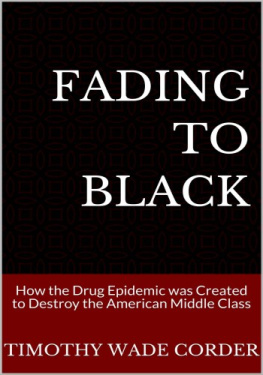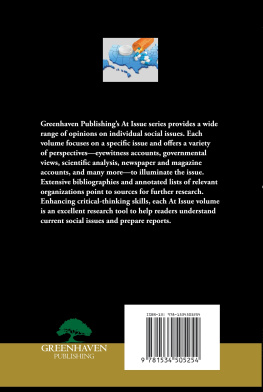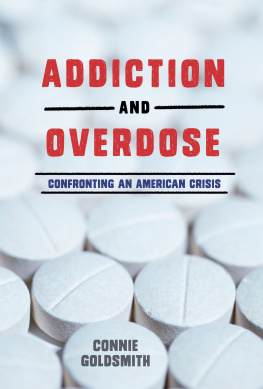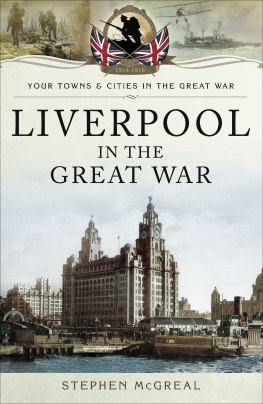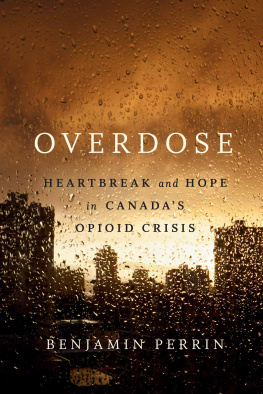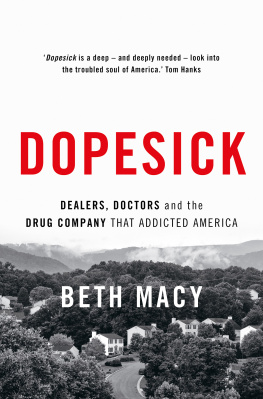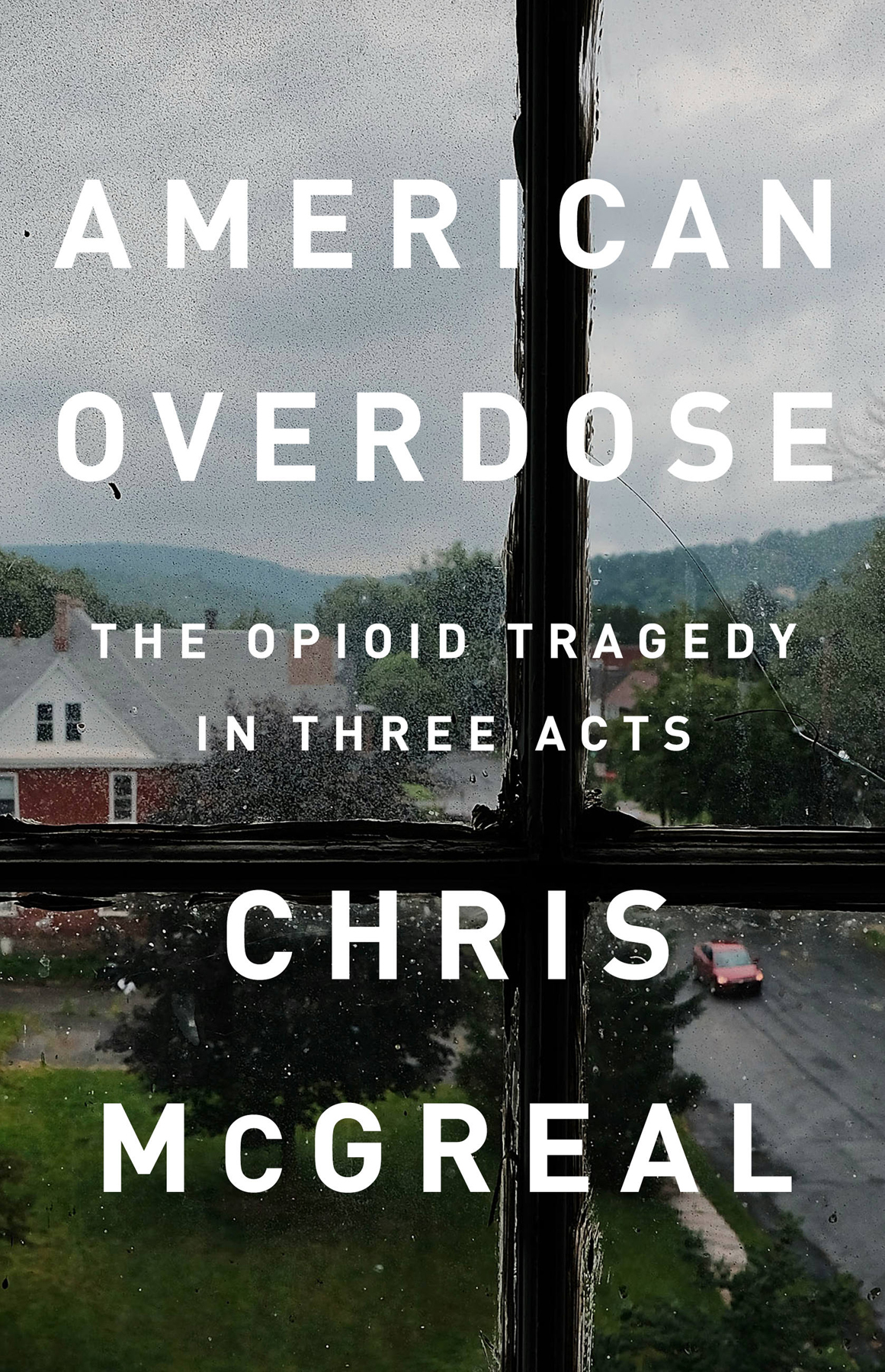Copyright 2018 by Chris McGreal
Cover design by Pete Garceau
Cover photograph Spencer Platt / Getty Images
Cover copyright 2018 Hachette Book Group, Inc.
Hachette Book Group supports the right to free expression and the value of copyright. The purpose of copyright is to encourage writers and artists to produce the creative works that enrich our culture.
The scanning, uploading, and distribution of this book without permission is a theft of the authors intellectual property. If you would like permission to use material from the book (other than for review purposes), please contact permissions@hbgusa.com. Thank you for your support of the authors rights.
PublicAffairs
Hachette Book Group
1290 Avenue of the Americas, New York, NY 10104
www.publicaffairsbooks.com
@Public_Affairs
First Edition: November 2018
Published by PublicAffairs, an imprint of Perseus Books, LLC, a subsidiary of Hachette Book Group, Inc. The PublicAffairs name and logo is a trademark of the Hachette Book Group.
The Hachette Speakers Bureau provides a wide range of authors for speaking events. To find out more, go to www.hachettespeakersbureau.com or call (866) 376-6591.
The publisher is not responsible for websites (or their content) that are not owned by the publisher.
Library of Congress Cataloging-in-Publication Data
Names: McGreal, Chris, author.
Title: American overdose : the opioid tragedy in three acts / Chris McGreal.
Description: First edition. | New York : PublicAffairs, 2018. | Includes bibliographical references and index.
Identifiers: LCCN 2018025909 (print) | LCCN 2018026257 (ebook) | ISBN 9781541773776 (ebook) | ISBN 9781610398619 (hardcover)
Subjects: LCSH: Opioid abuseUnited StatesHistory. | Chronic painTreatmentUnited States. | Drug abuseUnited States.
Classification: LCC RC568.O45 (ebook) | LCC RC568.O45 M46 2018 (print) | DDC 362.29dc23
LC record available at https://lccn.loc.gov/2018025909
ISBNs: 978-1-61039-861-9 (hardcover), 978-1-5417-7377-6 (ebook)
E3-20180925-JV-NF
For my sons, Braam and Zenzo
This book would not have been possible without those across the United States who gave generously of their time to speak to me so fully and frankly about living with addiction, the trauma of losing someone to opioids, and the impact of the drugs on their communities. I regret I was not able to include all of their names and accounts, but their insights framed and infused this book.
Among those who took the trouble to speak to me repeatedly over the years were April Rovero, Sandra Kresser, Avi Israel, Sherrie Rubin, and Emily Walden. Besides those quoted in the text, Im also grateful to Travis Bornstein, Robert Eaton, James Fata, Aimee Dunkle, Gary Mendell, Margie Borth, Erin Finkbiner, Jan Lovett, Maureen Kielian, and Gayle Saks.
Jim Cagle in Charleston, West Virginia, shared his knowledge and research in helping me understand events in Mingo County. Besides those quoted in the text, a number of people who choose to remain anonymous offered valuable insights into events in Williamson and Kermit.
Eric Eyre, a talented reporter at the Charleston Gazette-Mail, was generous with his time and information. Eric won a Pulitzer Prize for his groundbreaking exposure of the scale of opioid pills flooding West Virginia.
Im indebted to the many people who offered their perspectives on the workings of, and complex relationships between, the pharmaceutical industry, federal regulators, and the medical profession. I will not name them all here as they are quoted in the text or identified in the sources, unless they wished to remain anonymous. But Dr. Margaret Hamburg was alone among former FDA commissioners in agreeing to an interview.
Several people still employed by the government were obliged to speak to me off the record. Members of the congressional staff helped me understand the workings of the relationship between Congress and federal health regulators and between Congress and pharmaceutical lobbyists.
Professor Marcia Meldrum at UCLA shared her extensive knowledge of the history of prescription opioids and insights into the shift in her own thinking on their use as well as her impressions of Dr. Russell Portenoy.
I am also grateful to Dr. Jennifer Plumb, Dr. Grant Baldwin, Carol Moss, Robert Childs, Dan Bigg, and Adam Winstock who each offered important insights. Penney Cowan and Cindy Steinberg spoke to me about the perspective of patients in pain.
Others who made contributions to this book in different ways include Mary Sue Connolly, Craig Mayton, Alan Wald, James Myburgh, Molly Bingham, Ruaridh Nicoll, Rita Sabler, Sarah Boseley, and John Mulholland.
This book was set in motion by a phone call from Clive Priddle, the publisher at PublicAffairs. He asked about heroin and ended up discussing opioid prescriptions. Since then he has provided valuable guidance, insights, and pithy comments that have helped shape this book into what it is today. Annette Wenda did a fine job of editing the copy. Thanks also to my agent, Zo Pagnamenta, who was an enthusiast for this project, an excellent guide through the forest of contracts, and a top-notch negotiator.
The first time I looked into the face of opioid addiction, it was of a heavily made-up woman in her late fifties at a food bank in eastern Kentucky.
Karen Jennings had once been a manager at McDonalds. Walking home a little the worse for drink, she fell into a creek and broke her back. The doctor prescribed painkillers to ease her through the pain of recovery.
Even as her injury healed, the narcotics drew Karen in. The drugs worked on her brain to demand ever-larger doses of opioids with the promise of a few hours of bliss. If she failed to deliver, the narcotics exacted a perverse price. They caused her body to replicate the very pain they were supposed to fight. They tortured a fix out of her.
With that, Karens life spiraled into a perpetual hunt for pills, costing her job, destroying marriages, and taking a harsh toll on her family. She is haunted by a suspicion that her drug use contributed to the depression endured by her son, a bank vice president, who took his own life. By the time Karen emerged from her addiction fifteen years later, she was living on the breadline and amazed to find herself still alive.
Karen Jenningss story was a personal tragedy, but that was not how she told it. She cast herself as a survivor plucked from a sea of dead lost to a modern-day plague engulfing the communities around her. She was sucked in at the beginning, in the late 1990s, just as what was to become the biggest drug epidemic in American history was taking hold. In time, the contagion infiltrated almost every corner of the United States.
The ascendancy of prescription painkillers was driven, at first at least, by one drug, OxyContinthe most poweful narcotic painkiller ever released for routine prescribing. It wasnt the only opioid, but it was the game changer because of its strength and because the manufacturer, Purdue Pharma, unleashed a marketing campaign like no other to make it the go-to drug for pain treatment. In the parts of rural Appalachia first blighted by OxyContin, the pills were known as hillbilly heroin for a reason.
The clues to the scale of the catastrophe were in the details long before the death statistics were taken seriously. The firefighters called out more often for overdoses than fires. The teachers buying food for the growing numbers of students neglected by parents spending their time and money on drugs. The pharmacies popping up in small towns where other shops were in retreat for lack of business. The surge in babies born with withdrawal symptoms and cared for by grandparents. The firms unable to find enough workers to pass a drug test.




